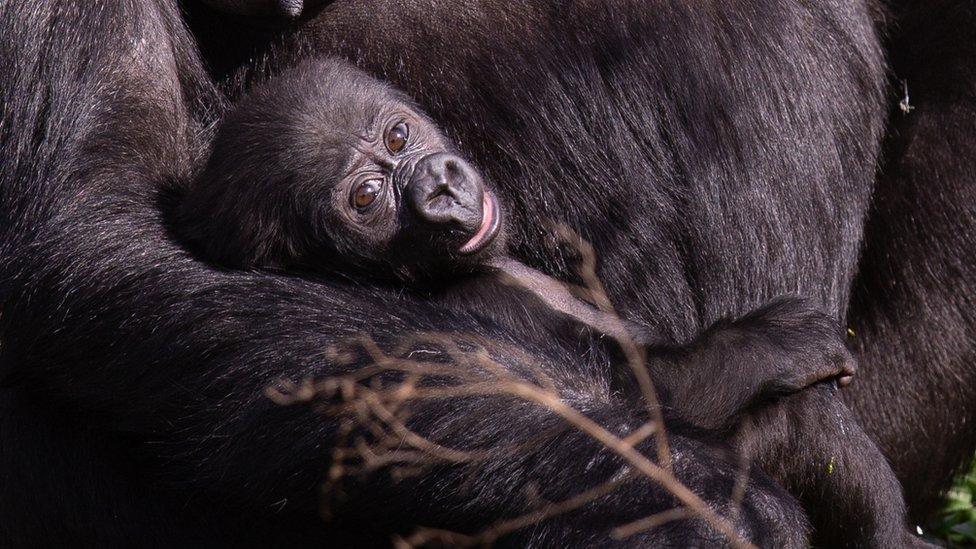Bristol Zoo memories as 'major part' of city's life closes
- Published
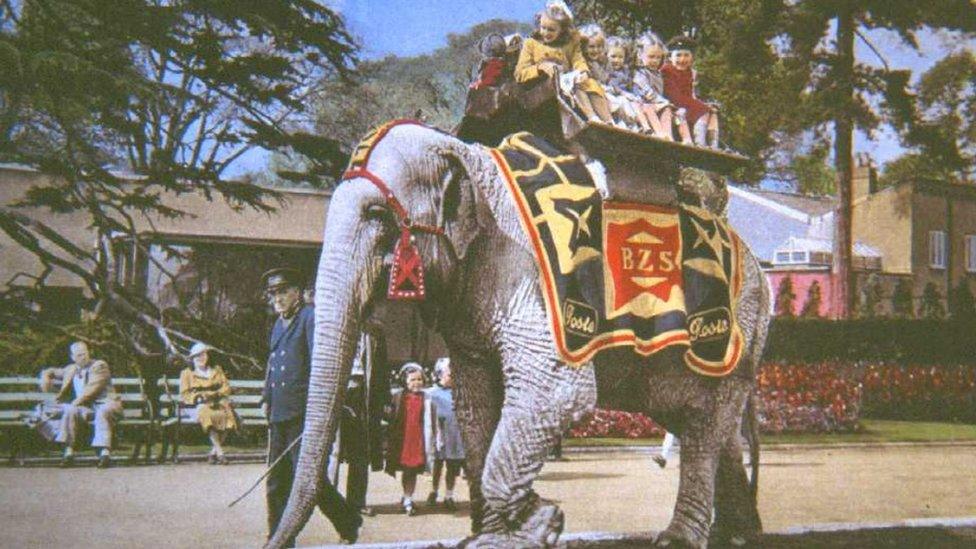
Bristol Zoo has welcomed some 90 million visitors since it opened in 1835
As the world's fifth oldest zoo prepares to close, people have been reflecting on their special memories.
Anita Oldham, 49, began visiting Bristol Zoo with her father - who has since died - when she was a baby.
"When I visit, I think of him. That is why this zoo will always be the gift that keeps on giving for me," she said.
The zoo, in Clifton, will open for the last time on Saturday before it moves to a new site at the Wild Place Project in South Gloucestershire.
Ms Oldham vividly remembers her first trip in the late 1970s.
"It was my father who first took me to that wonderful place and I just fell in love with it," she said.
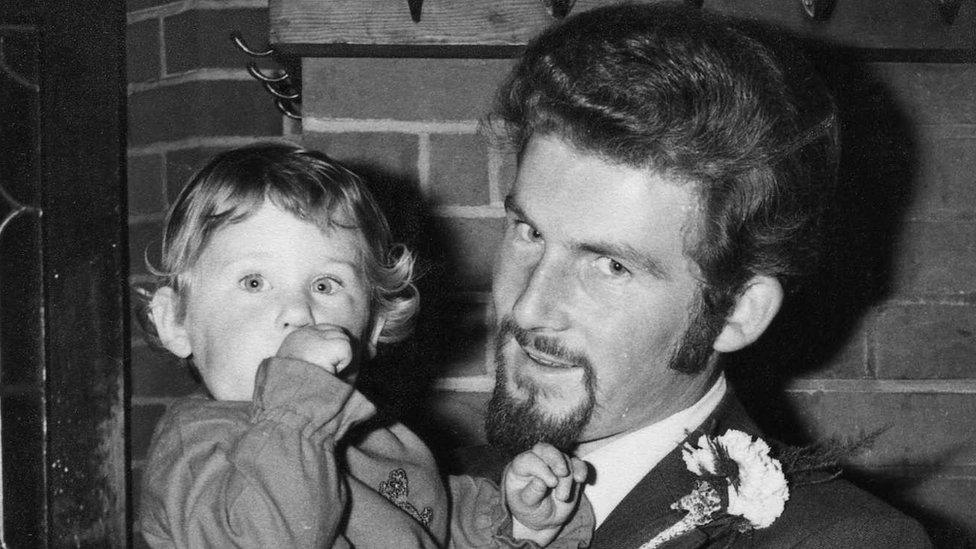
Ms Oldham and her father, Keith Oldham, spent lots of time together at the zoo
"My first memory, the beautiful terracotta Monkey Temple... there was no barrier or bars between us and the monkeys and it just really allowed me to connect with them."
Ms Oldham's father passed away in 2015 and she said that visiting the zoo allowed her to re-live special moments with him.
Simon Garrett, 56, started working at Bristol Zoo in 1989 and in his 32 years there he has seen major transformations.
"Every year we've done new things and pushed the boundaries of conservation further than ever before," he said.
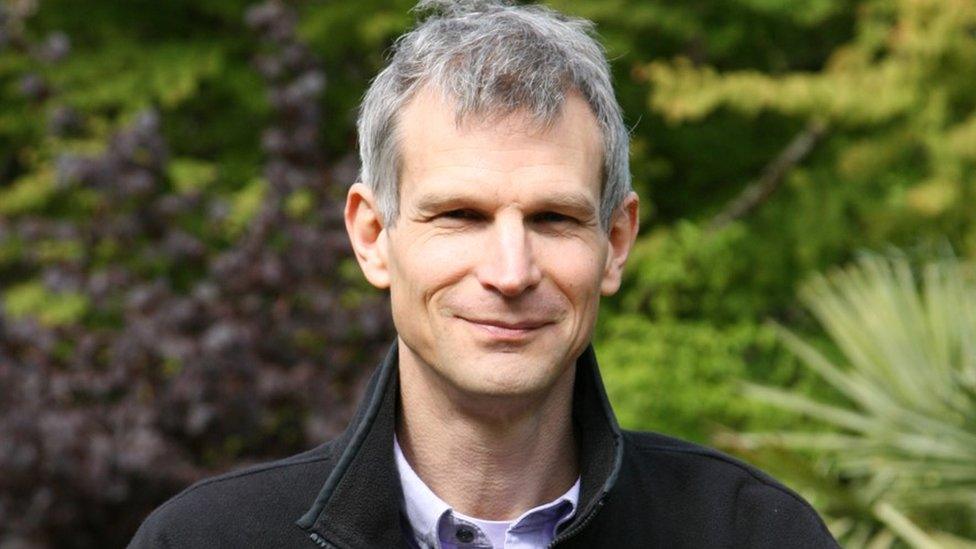
Mr Garrett is particularly proud of the zoo's conservation history
Mr Garrett described how the zoo, which has welcomed as many as 90 million visitors, has been "a major part of Bristol life" since it first opened in 1835.
"It used to be funded by wealthy families, but now relies on donations and visitor charges," he added.
"Animals housed there were often sourced by rich collectors instead of conservationists. A large amount of the animals there weren't endangered."
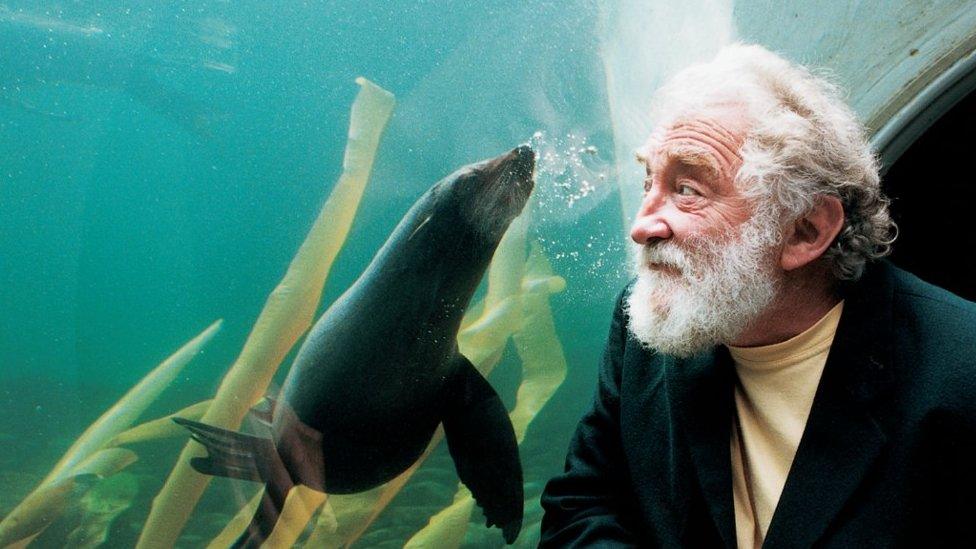
Broadcaster David Bellamy was a big fan of the zoo
But over time, Mr Garrett said that conservation work became "central" to the zoo's existence.
"The animals on display act as ambassadors for work we're doing around the world," he added.
Underpinned by scientific research, Bristol Zoological Society carries out conservation projects in four continents across the world.
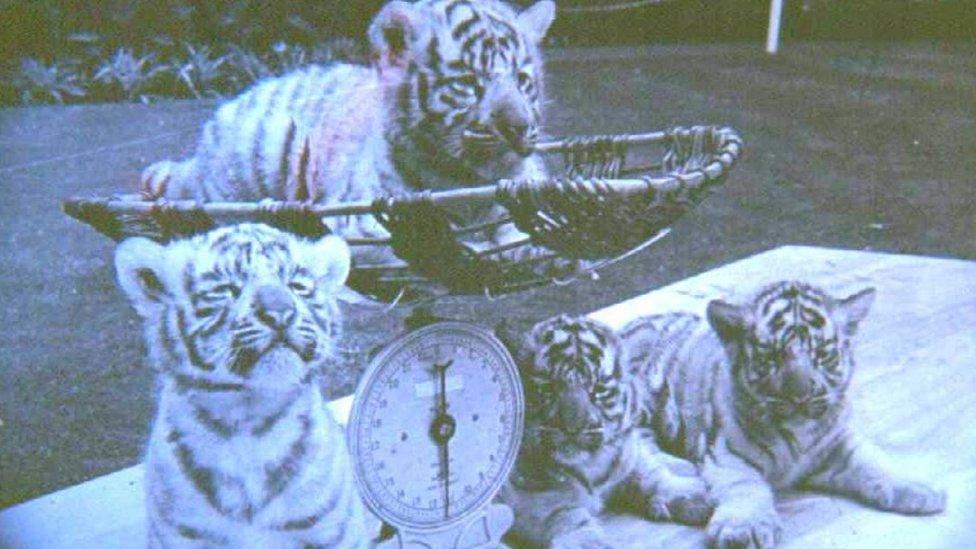
Cubs being weighed in the early 1900s
Jane Denbury, 83, used to live just around the corner from the zoo and she was friends with one of the keepers of the Ape House.
"The keeper suggested that I might like to meet the baby orangutans and I quickly jumped at the offer," she said.
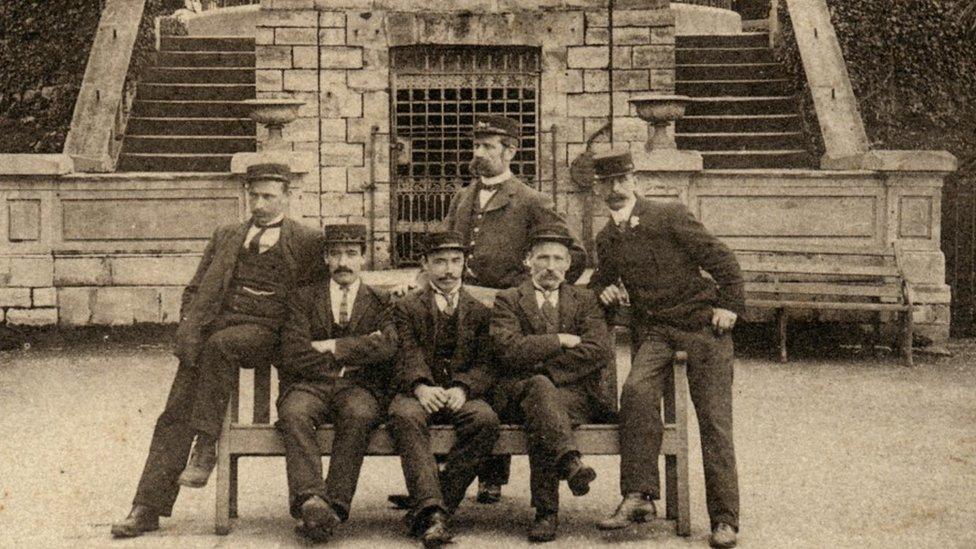
Bristol zoo keepers used to wear suits as uniform
"So he arranged a meet and the three babies, Henrietta, James and one whose name I cannot remember, were put into a wheelchair and duly taken for a walk."
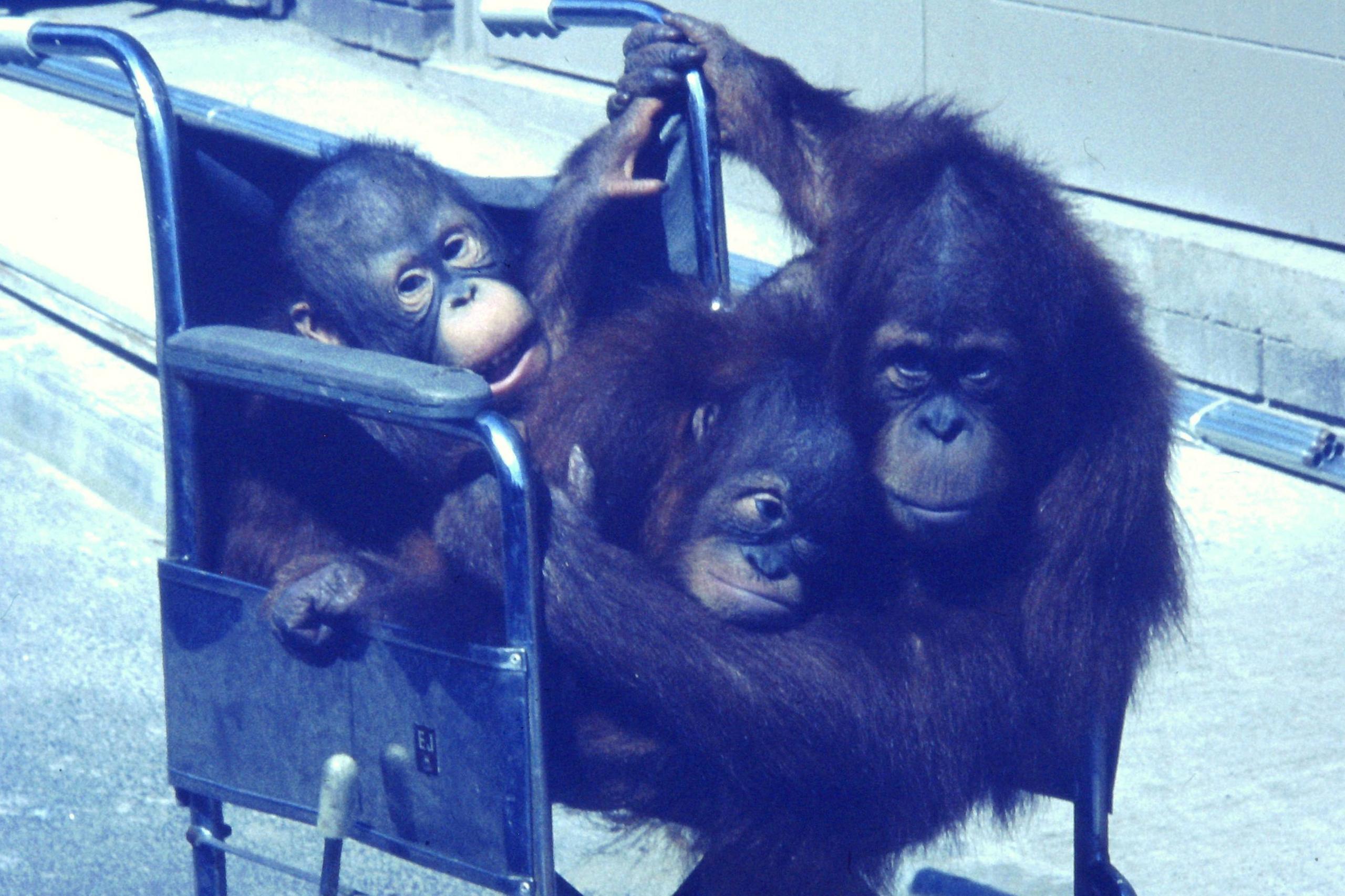
Henrietta, James and another orangutan were taken to meet Ms Denbury
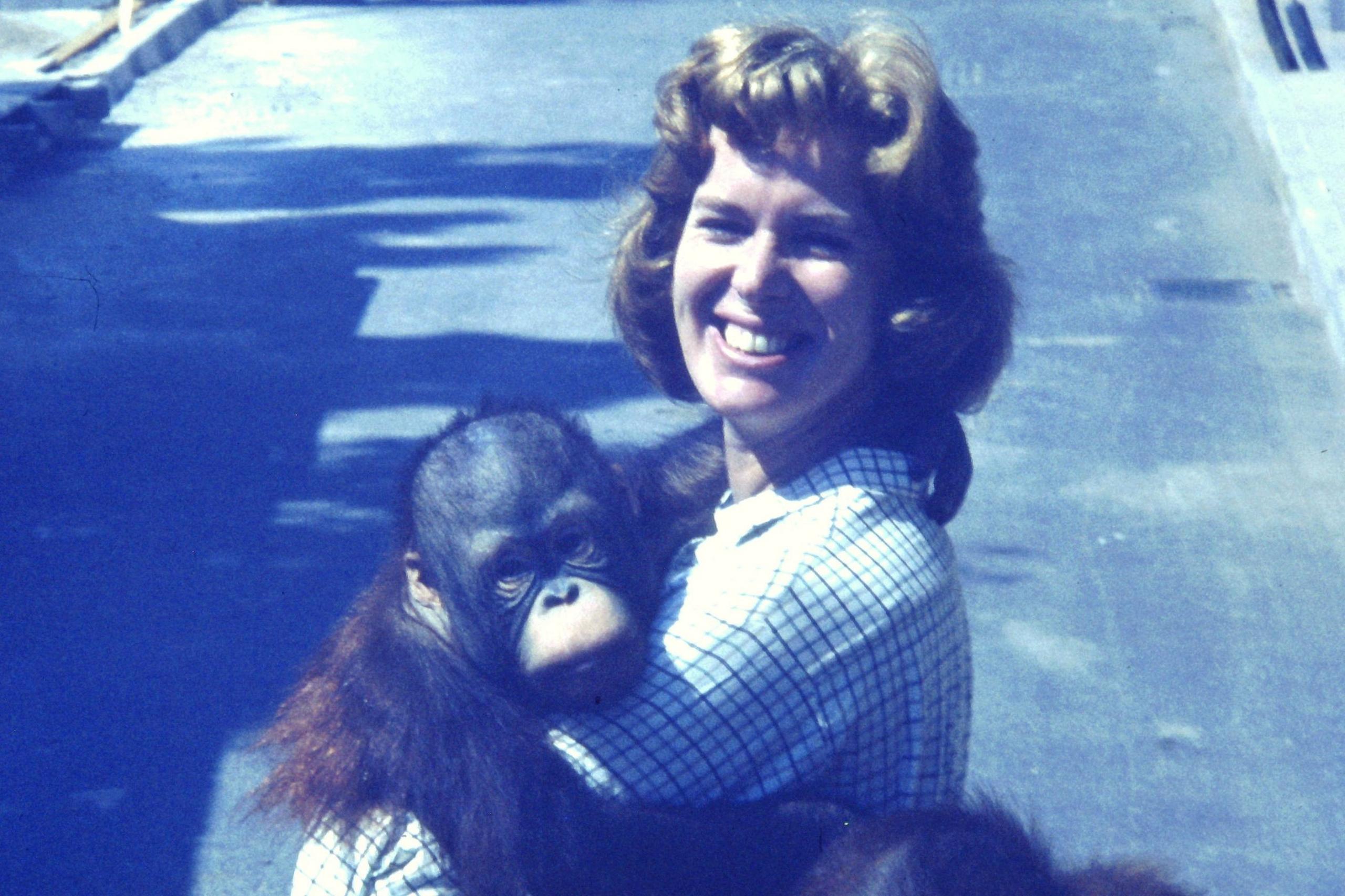
Ms Denbury said she "fell in love"
After the zoo closes, its current 12-acre site in Clifton will be made accessible to the public for free.
Although the lake will be improved and a new nature-inspired play area is in the plans, much of the gardens will remain unchanged with historic features like the Monkey Temple and former Bear Pit being preserved.
The new Bristol Zoo will be housed at the Wild Place Project site, near junction 17 of the M5 in South Gloucestershire.

Follow BBC West on Facebook, external, Twitter, external and Instagram, external. Send your story ideas to: bristol@bbc.co.uk , external
Related topics
- Published21 July 2022
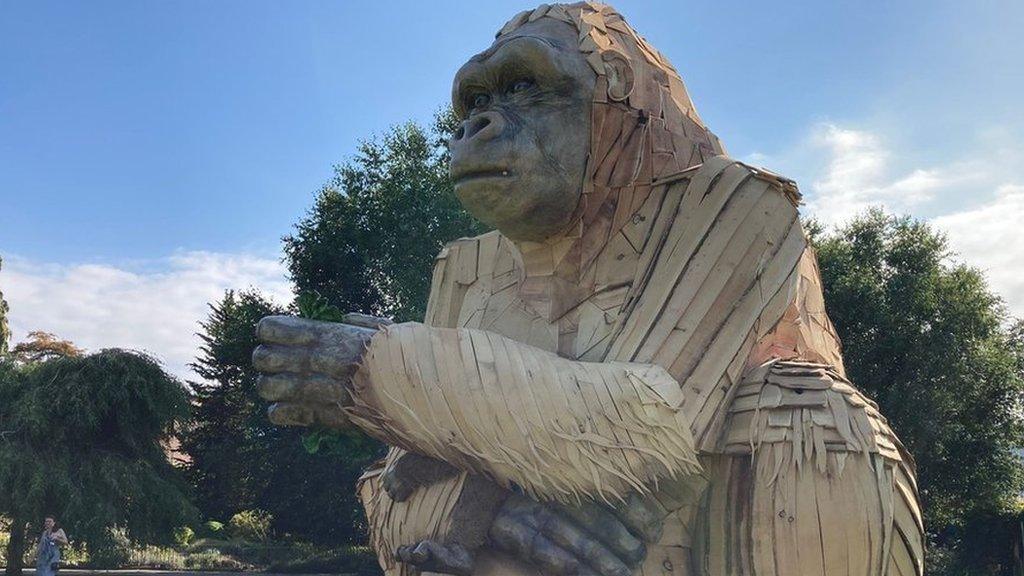
- Published14 June 2022
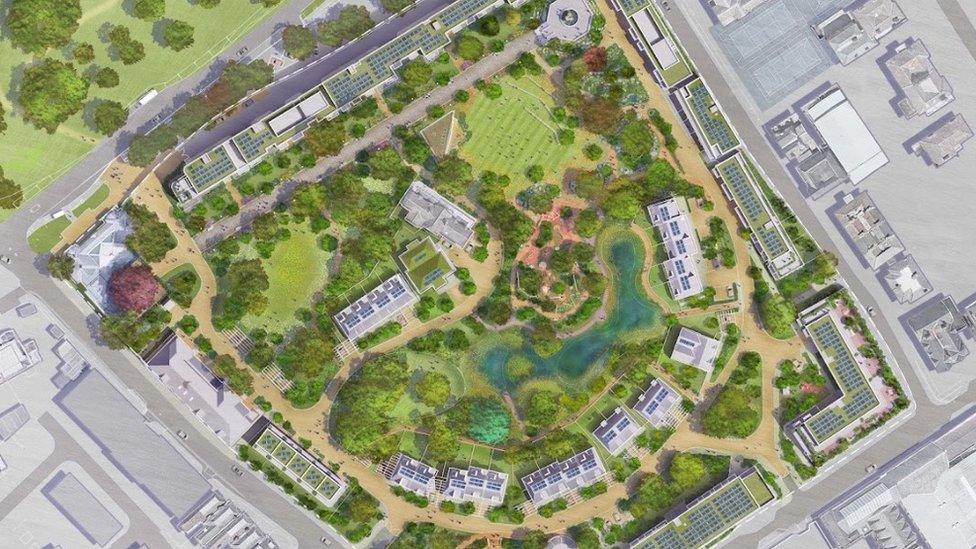
- Published15 February 2022
